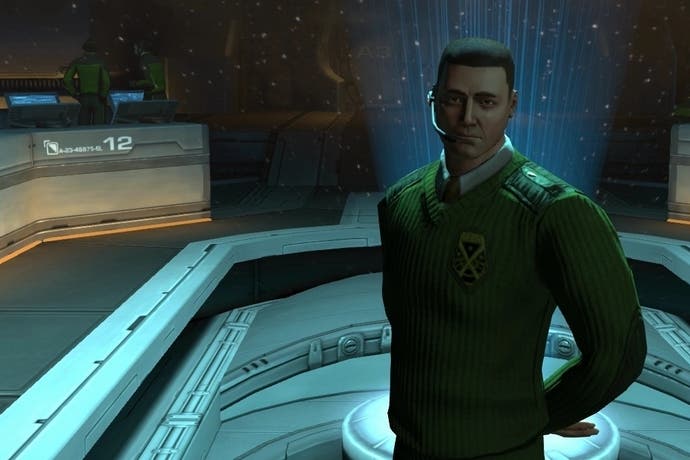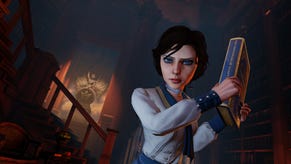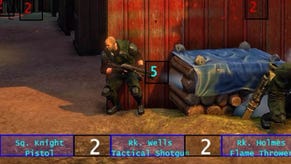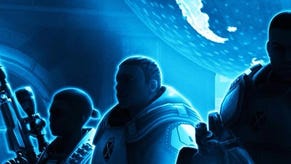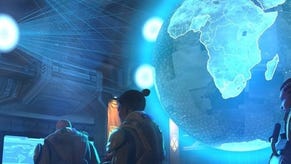Games of 2012: XCOM: Enemy Unknown
Alien concepts.
I didn't think it was ever going to happen. The games industry isn't Hollywood and they don't toss out another remake of an old classic every other year. Sure, there are an increasing number of games inspired by fondly remembered oldies, usually produced by enthusiastic indie developers, but flat-out remakes are as rare as shamrocks and not nearly so lucky.
The problem was the original UFO: Enemy Unknown (also known as X-COM: UFO Defense) stood the test of time all too well. It was made available to buy on Steam even though it was in its late teens, and every other PC gamer continued to reminisce about its extraordinary turn-based tactical combat and real-time global strategy. It was untouchable - the godfather of strategy - and trying to follow it was folly.
Its success was a curse for the X-COM sequels that followed. Terror From the Deep couldn't get the balance right, Apocalypse struggled to model a living city, Interceptor didn't give you enough to do and Enforcer simply gave up trying to present anything challenging. Subsequent attempts were cancelled and games inspired by the X-COM series were, at best, no more than waxwork imitations, stiff and sparing.
Then, when we knew it was happening, it couldn't possibly measure up. It would break things, it would fail to respect or understand its heritage, it would inevitably plump for style over substance. The delays in development seemed to confirm that something was wrong and when, finally, we began to see quite a different game emerging, many of us reacted with horror.
Then, when the day of release came, we stood and we watched in silent awe as the series was reborn as XCOM: Enemy Unknown. This would be year zero. This, again, would be first contact.
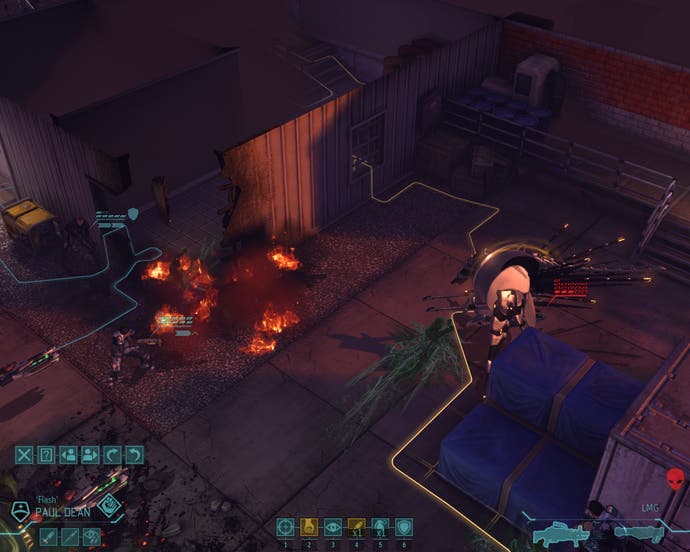
And it wasn't bad, eh? Comrade Rich Stanton absolutely adored this game. "Near the campaign's end, there's a direct tribute to the original game's designers, the Gollop brothers, accompanied by an achievement called 'On the Shoulders of Giants'," he noted. "It's a beautiful touch, a nod from one development team to another across the generations. They have something in common now. In their own time and place, each made a fantastic game called XCOM." [It is also hugely popular with the rest of the editorial team! -Ed]
But I have to stick my neck out on this. XCOM: Enemy Unknown is a pretty good example of turn-based tactical combat combined with very, very challenging strategic management, but it has its flaws.
I should first declare that, yes, I was an enormous fan of the original game and, no, I'm not at all disappointed by the design changes that Jake Solomon and his team agonised over. It was brave and sensible to reset the development of the game and come at it from a different angle; a carbon copy of the original would have been unfulfilling and unnecessary. And it was a decision that has been largely vindicated by the end result. XCOM carries the spirit of its ancestor inside it, but it feels original and clearly benefited from the streamlining that came from a very critical development process.
By and large.
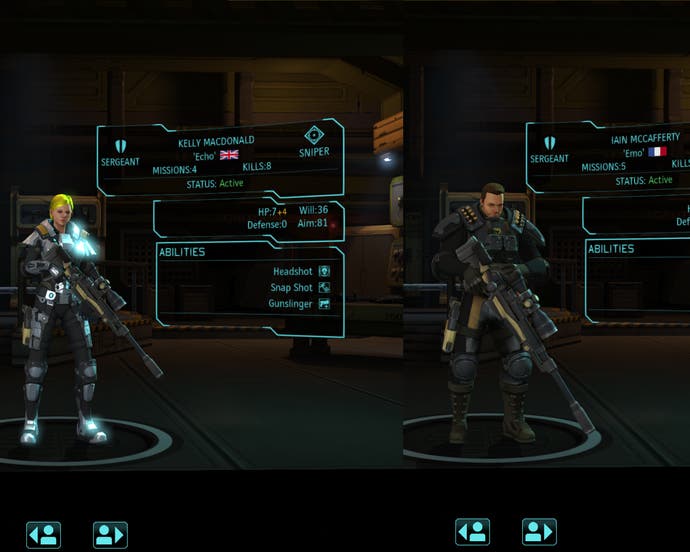
What I was so impressed by was how much tighter this game was. It was like sliding a leather glove onto your hand and hearing it creak as you made a fist. While the cover mechanic introduced to the tactical side is a little artificial in its execution, it nevertheless places a great deal of emphasis on squad movement and positioning. It earns its inclusion by introducing serious tactical considerations.
Back at base, the strategic overview constantly presents you with decisions that aren't so much about what to do as what not to do; about what to avoid or what to neglect. Most of the time I find budgets incredibly tight and while it's possible to flog alien hardware to raise funds, I inevitably need many of the items I've recovered to help manufacture other items. Pretty soon I have to cut corners wherever I can, or make unpleasant sacrifices by selling items or putting back projects that I really don't want to delay. This is what strategic management is really about: crucial decisions all the time. My compromises are entirely up to me and in three decades of gaming I've rarely been so aware of this.
But when the aliens begin to attack, always making sure to strike in several locations at once, it's a little too contrived for my taste. Sure, it makes sense for them to attack in this way, but as my roster of ships and soldiers gradually increase, it becomes frustrating not to launch multiple responses, even from the same base, and I find my fighters have to line up to take turns intercepting. The hard-earned money that I make difficult decisions about spending isn't helping. The game is limiting how I play it.
Then I begin to notice how control is slipping away from me in a few other areas. Sometimes there is absolutely nothing I can do to prevent a country from collapsing in panic, because events simply never lead me that way, and I find myself irritated by what is becoming my biggest bugbear: the game choosing my soldier's jobs for me. In the last game I started, half of all the soldiers I recruited have been made into snipers. Nine of my seventeen surviving XCOM soldiers are snipers. I tried recruiting more soldiers and it made them all into snipers. What happened to those critical choices I was making, I begin to wonder? Who is it who's deciding such things for me? A surplus of snipers only leads me into further frustration.
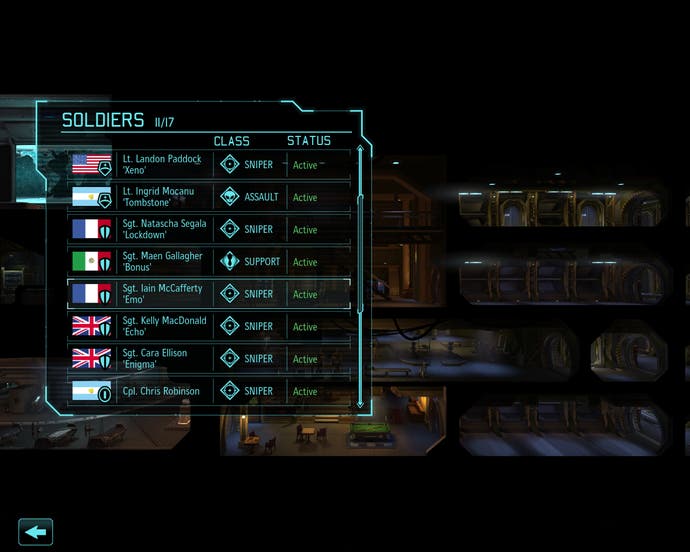
What I need is more dedicated medics, a role that a trained member of the support class can do a pretty good job of, providing the game wants to give you any. These trained medics are invaluable on the ever-denser urban battlefields that the game lets you loose in; battlefields that it gradually thickens with more and more aliens. All of whom, I should add, will always manage to dash for cover, outside of the sequence of play, the very moment you encounter them.
It was on one of these battlefields that I first discovered I had absolutely no control over my inventory. The med-kits that I had to scrimp and save for, along with all the other equipment I'd carefully allocated to my troops, somehow become glued to their owners' bodies for the entirety of a mission. Should anyone with a med-kit be injured themselves, you ain't going to be able to use their own equipment to perform first aid on them, even though it's right there in their pocket. I find it bizarre that XCOM is a game that forces you to very, very carefully consider what items you manufacture and then distribute to your troops, before then preventing you from altering any of this in any way once boots are on the ground.
But I love those gunfights. They're fast and precise and sometimes painful affairs. I like how they reward patient play, almost as though they're acknowledging my efforts to keep people alive against all odds. I gun down so many aliens in engagements that sometimes go down to the wire, and I feel a real sense of achievement the first time I capture a live specimen. I had to work for that.
I also love the idea that console gamers are having the same experiences as I am on the PC. When I previewed XCOM earlier this year, I played an early build on a PC, but I used a joypad to control the game. This may be enough to make some of you physically sick, but I was delighted. It brought back memories of Valkyria Chronicles. Why shouldn't console gamers enjoy more games of strategy and tactics?
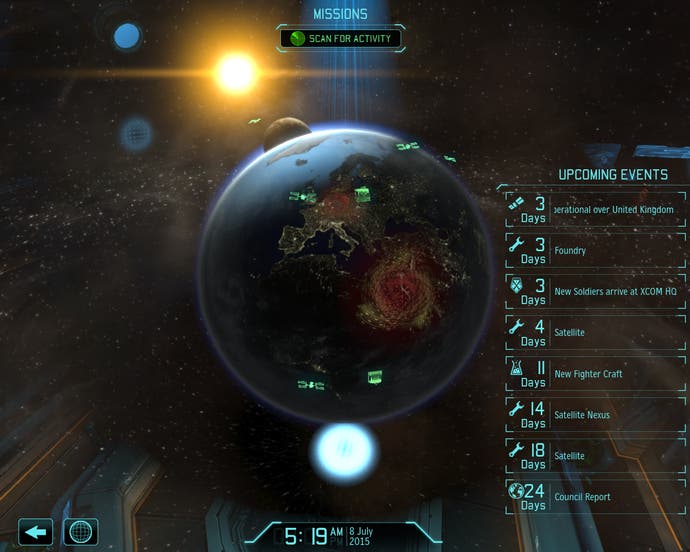
There are still lots of things about XCOM that make me grind my teeth, like having to laboriously swap equipment before a mission, or questionable line-of-sight mechanics, or animations of soldiers kicking down non-existent doors, and the difference in the size of firearms used by male and female soldiers. Why do the ladies get dinky versions of the same guns that the men do?
But I'm still really glad XCOM is back with us again. The equable approach to console and PC players and the stories of agonising design decisions are all part of what makes this game so impressive and respectable, and I'm hopeful for the future of Enemy Unknown. There will be mods to come that that address some of my grievances and, in the meantime, I'll continue to tinker with it now and then.
I wouldn't say I'm a fan of XCOM: Enemy Unknown, then, but it's hard not to argue that something special touched down in 2012.
